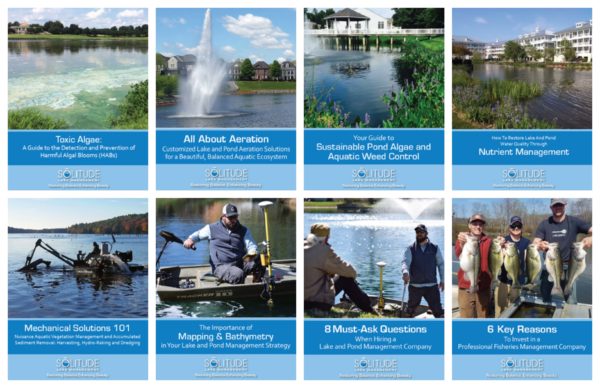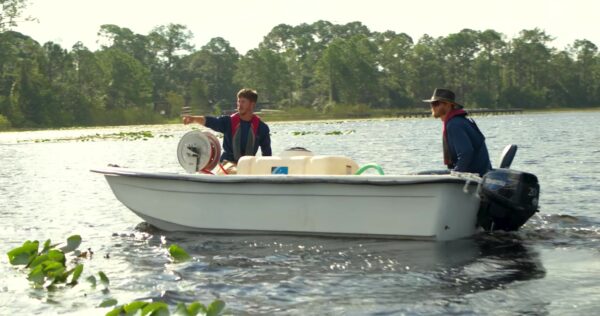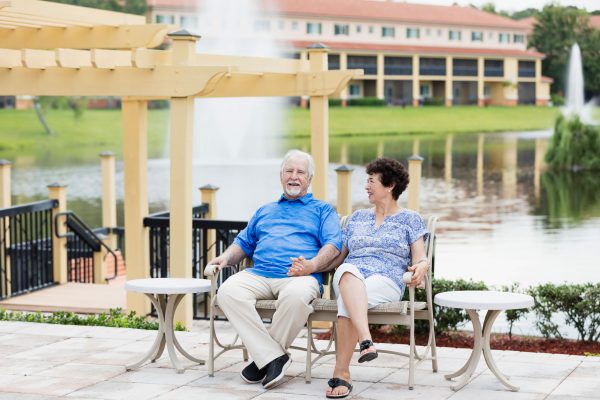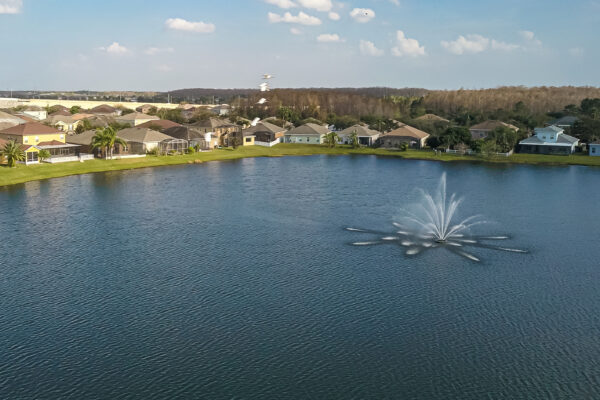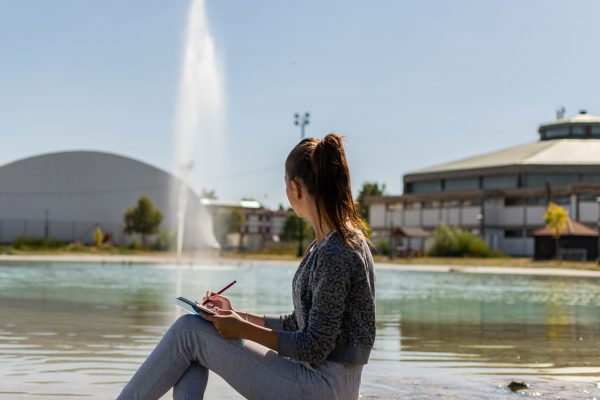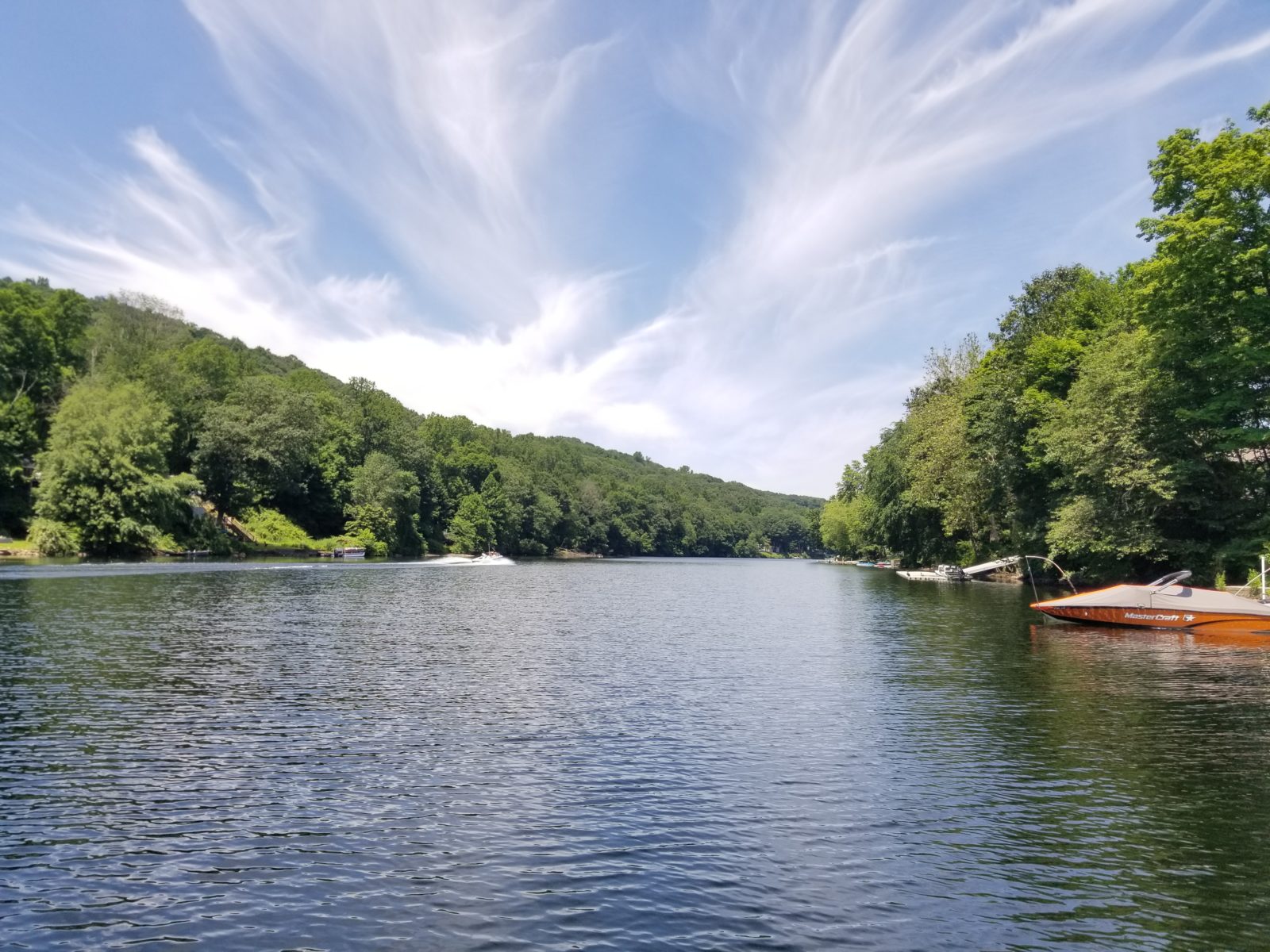Case Study: Volumetric Approach to Managing Giant Salvinia Successful
July 23rd, 2018
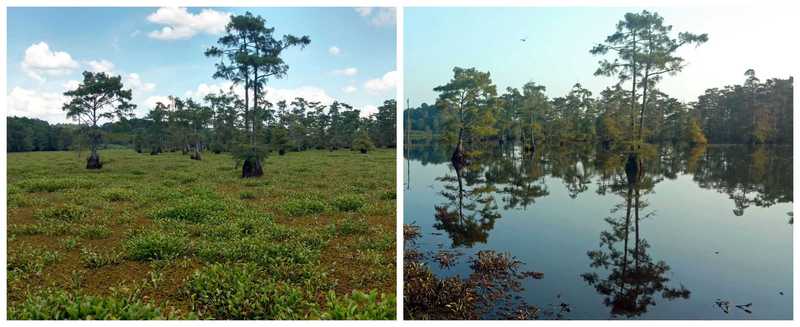
Written by Industry Experts Paul Dorsett, Fisheries Biologist, and Keith Gazaille, Director of Lake Management – North and Mid-Atlantic
Flag Lake is a 664-acre lake located on Barksdale Airforce Base near Bossier City, Louisiana. The lake is relatively shallow, averaging less than four feet deep, and serves as a valuable aquatic resource to the base and the surrounding communities by providing excellent fish and wildlife habitat, as well as important recreational opportunities in the form of fishing, waterfowl hunting and wildlife viewing. Historically, Flag Lake has suffered from the excessive growth of a variety of plant species, but most notably, invasive hydrilla (Hydrilla verticillata), American lotus (Nelumbo lutea) and water hyacinth (Eichhornia crassipes). In recent years, however, giant salvinia (Salvinia molesta) has dominated the plant assemblage, reaching problematic conditions in 2017 with an estimated 500 acres of water covered in this invasive aquatic plant. To combat this invasive species, SOLitude employed a volumetric management approach that was fairly experimental for an infestation of this magnitude.
Giant salvinia is considered to be one of the most invasive exotic plants threatening reservoirs and other waterbodies in the southern U.S. Salvinia is capable of spreading rapidly, often doubling its biomass in only a matter of days. If left unmanaged, it not only has the ability to impair ecological balance, but will readily spread to other waterbodies, as it can be easily transported by heavy downstream water flow and on the trailers of unsuspecting boaters.
Prior to the giant salvinia infestation, SOLitude managed this waterbody using a foliar treatment approach—where herbicide is sprayed directly on the emerged leaves of the target plants. However, with the rapid growth of giant salvinia, the team was fighting a losing battle while using foliar treatments. Because of the growth rate of the giant salvinia and limited long-term plant control being achieved by the foliar herbicide treatments, SOLitude worked closely with SePRO Corporation to design a volumetric treatment program that utilized a systemic aquatic herbicide.
As opposed to the foliar treatments, the volumetric management approach involved treating the entire lake with a properly concentrated dose of the new herbicide (designed to specifically target the invasive plant species). The volumetric approach eliminated issues of inaccessibility and plant movement associated with foliar treatment. And although this strategy carried a higher upfront cost, it was the only management approach that effectively addressed the long-term reduction of the invasive plants, thus reducing the overall long-term cost.
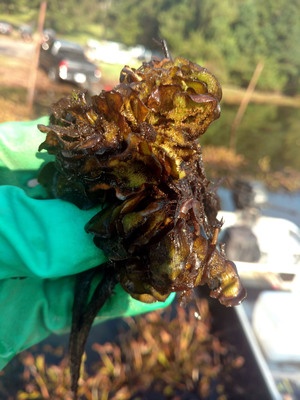 Before the new lake management plan began, the water level was lowered to reduce the risk for herbicide loss due to downstream flow. From there, the volumetric management plan involved two applications. The initial application was made in July of 2017 to achieve a lethal dose, after which the herbicide concentration and water quality was monitored to ensure that residues were suitable for plant eradication. Sample analysis following the treatment indicated that the herbicide concentration was effectively established and holding well. A “booster” treatment was then added in early September, in response to heavy rainfall from Hurricane Harvey.
Before the new lake management plan began, the water level was lowered to reduce the risk for herbicide loss due to downstream flow. From there, the volumetric management plan involved two applications. The initial application was made in July of 2017 to achieve a lethal dose, after which the herbicide concentration and water quality was monitored to ensure that residues were suitable for plant eradication. Sample analysis following the treatment indicated that the herbicide concentration was effectively established and holding well. A “booster” treatment was then added in early September, in response to heavy rainfall from Hurricane Harvey.
Approximately one month after the initial treatment, significant plant discoloration and biomass reduction were easily observable throughout much of the lake. The timing of the booster application in response to the recharge of the lake volume allowed for desirable in-lake herbicide concentrations. As a result of this extended concentration exposure time, the treatment program provided almost 100% control of water hyacinth and greater than 95% control of giant salvinia.
The high level of plant control achieved by this volumetric treatment program will undoubtedly have benefits through 2018 and significantly improve the potential to sustain vegetative balance in Flag Lake. While preventative measures are the preferred management approach, success of this treatment demonstrates a new and exciting long-term focused management strategy that can be implemented throughout the country in areas where this invasive plant has already taken over.
Contact the experts at 888-480-5253 for all of your lake, pond, wetland and fisheries management needs.
 Keith Gazaille is an Aquatic Ecologist based in central Massachusetts who serves as the Regional Director of Lakes in the New England region. Keith has worked in the lake and pond management industry since 1998 and has been responsible for the design, permitting and implementation of hundreds of management programs across the Northeast. His direct project experience includes fisheries and wildlife habitat improvement, aquatic, wetland, and upland invasive species control, water quality enhancement, nutrient management, aeration, dredging and watershed management.
Keith Gazaille is an Aquatic Ecologist based in central Massachusetts who serves as the Regional Director of Lakes in the New England region. Keith has worked in the lake and pond management industry since 1998 and has been responsible for the design, permitting and implementation of hundreds of management programs across the Northeast. His direct project experience includes fisheries and wildlife habitat improvement, aquatic, wetland, and upland invasive species control, water quality enhancement, nutrient management, aeration, dredging and watershed management.
 Paul Dorsett is a Fisheries Biologist based in Texas. Paul has nearly 30 years of experience in aquatic ecosystems development and restoration, including fish production, aquatic plant management and water quality. He is licensed by the Texas Department of Agriculture as a commercial aquatic herbicide applicator and a member of the Texas Chapter of the American Fisheries Society. Paul also serves on the board of directors and is past president for the Texas Aquaculture Association as well as the Texas Aquatic Plant Management Society.
Paul Dorsett is a Fisheries Biologist based in Texas. Paul has nearly 30 years of experience in aquatic ecosystems development and restoration, including fish production, aquatic plant management and water quality. He is licensed by the Texas Department of Agriculture as a commercial aquatic herbicide applicator and a member of the Texas Chapter of the American Fisheries Society. Paul also serves on the board of directors and is past president for the Texas Aquaculture Association as well as the Texas Aquatic Plant Management Society.
SOLitude Lake Management is a nationwide environmental firm committed to providing sustainable solutions that improve water quality, enhance beauty, preserve natural resources and reduce our environmental footprint. SOLitude’s team of aquatic resource management professionals specializes in the development and execution of customized lake, pond, wetland and fisheries management programs that include water quality testing and restoration, nutrient remediation, algae and aquatic weed control, installation and maintenance of fountains and aeration systems, bathymetry, mechanical harvesting and hydro-raking, lake vegetation studies, biological assessments, habitat evaluations, and invasive species management. Services and educational resources are available to clients nationwide, including homeowners associations, multi-family and apartment communities, golf courses, commercial developments, ranches, private landowners, reservoirs, recreational and public lakes, municipalities, drinking water authorities, parks, and state and federal agencies. SOLitude Lake Management is a proud member of the Rentokil Steritech family of companies in North America.



